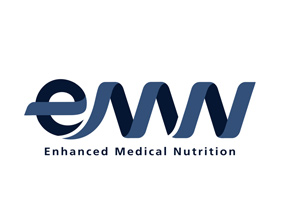You may never have your photo on the front of a Wheaties box or stand on the podium at the Olympic games, but even weekend warriors can follow a nutritious diet and improve their performance, health, and well-being.
While elite athletes consume as many as 12,000 calories a day during training, the average person’s caloric needs are based on basal metabolic rate – the number of calories regularly burned in daily life, and the frequency and intensity of an individual’s daily fitness program.
Most women require from 1,800 to 2,200 calories per day, based on age and activity level, and men need from 2400 to 2800, but metabolism can be unique. Keeping your own daily caloric needs and personal health and fitness goals in mind, how can you eat like an Olympian?
Plan your meals
Planning meals in advance saves time, money, and calories. Create your weekly meal plan and grocery list on Saturday or Sunday and be sure it contains foundational foods. This helps prevent impulse buying, as well as impulse eating. An Olympic athlete’s daily meal plan looks something like this:
- 55-60 percent of their daily calories come from carbohydrates, including vegetables, fruits, and whole grains.
- 15-25 percent of their daily calories come from lean proteins, fish, poultry, beans, and low-fat dairy.
- 20-30 percent is derived from high-quality fats such as olive oil, nuts and nut butters, seeds, and avocados.
Don’t skip breakfast
Olympians consume their first meal approximately 30 to 60 minutes after waking up, and high-quality, lean protein is always on the menu. Go organic and build a power breakfast from:
- Omega-3-rich eggs or egg whites
- Lean breakfast meats like turkey sausage
- Low-fat, organic dairy
- High-protein, whole grains like steel cut oatmeal or quinoa
Eat small, frequent meals
Olympians fuel their bodies at least every four hours. A regular meal schedule prevents fatigue and reduces the risk of injury. Make it your goal to provide your body with all of the macronutrients and calories required to sustain your daily activities. Proper nutrition during high-activity periods helps you avoid glycogen depletion, reduces muscle damage, speeds muscle recovery, and enhances your immune function.
Eat for your sport
Endurance athletes such as cyclists and marathon runners have different nutritional needs before, during, and after their sports than those of powerlifters. While endurance sports require a higher carbohydrate intake, strength athletes have higher protein needs to support increases in lean muscle mass. Team sport athletes can have carbohydrate and protein needs somewhere in between, depending on the sport.
Eat to repair your body
It’s important to replenish nutrients within 30 minutes of a grueling run or long-distance bike ride. A nutrient-packed shake is an easy-to-digest option. Try a post workout shake with:
- Soy or nut milk
- A plant- or whey-based protein powder
- A banana or berries
- Two tablespoons of creamy peanut butter
Hydrate
Although fluid requirements vary from person to person, it’s important to consume approximately 11 to 15 cups of water daily. Choose filtered, contaminant-free water whenever possible, and supplement with herbal teas and natural juices. However be careful not to overhydrate: drinking too much fluid can lead to an electrolyte imbalance and a condition known as hyponatremia.
Boost energy and brainpower with caffeine
Many Olympians start their day with coffee. Studies show the caffeine in coffee might also provide longer-term benefits to thinking skills and memory. But, as with everything, be sure that you don’t over-caffeinate.
Use vitamins and supplements to fill gaps
Vitamins and supplements make up for the nutrients missed when the diet cannot supply them. For elite athletes and recreational players alike, they help boost energy, immunity, and overall well-being.
The principles of sports nutrition remain consistent, whether you’re a weekend warrior, average exerciser, or elite athlete; the only aspect that changes is the total caloric intake. To maximize performance, focus on sound eating principles, such as eating every 3 to 4 hours, eating after training to enhance recovery, hydrating, and supplementing when needed.
Authored by Zach Meeker, Research Assistant for Midwest Orthopaedics at Rush University Medical Center
Reference:
May A. Beydoun, Alyssa A. Gamaldo, Hind A. Beydoun, Toshiko Tanaka, Katherine L. Tucker, Sameera A. Talegawkar, Luigi Ferrucci, Alan B. Zonderman, Caffeine and Alcohol Intakes and Overall Nutrient Adequacy Are Associated with Longitudinal Cognitive Performance among U.S. Adults, The Journal of Nutrition, Volume 144, Issue 6, June 2014, Pages 890–901.
Click here for full podcast playlist.















